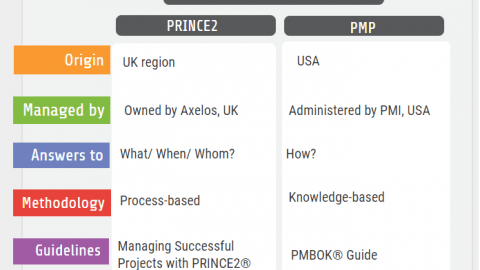How to Survive Your First Months at a New Job: Tips for Success
There are plenty of job candidates that are looking for work right now and daydreaming about landing the perfect position. That’s especially true if you’ve just graduated or are changing careers. If you’re trying to land your first job luckily there are resume templates for freshers without experience to help you out. The job search can be difficult, but if you’re already seeing light at the end of the tunnel you should know what to expect. Once you do land that position, starting a new job is an exciting feeling. If you’re currently job searching or just got hired to a new position you might be thinking about what lies ahead. And how to survive at a new job?
Table of Contents
You’re probably imagining yourself enjoying the free breakfast offered by the company or any other perks they’ve offered, but what happens when that honeymoon period is over?
While you’ll be given time to adapt and make mistakes you shouldn’t be making later on, the initial eight weeks in a new job are often considered the most crucial.
Below we’ll cover why your first months are so important to your future with your new company and how you can positively set the tone for the rest of the experience.
Why Your First Months Are Crucial When Starting a New Job
The first two months are usually enough time for you to set the tone for your future success within the company. While we mention two months it may actually take more or less time depending on each employee’s mindset, pace, and position.
To explain why the first two months are so essential when starting a new role, we’ve come up with the following reasons.
Establishing Positive First Impression
Your first two months on the job are your opportunity to create a strong first impression with your colleagues, supervisors, and clients. By demonstrating professionalism, enthusiasm, and a strong work ethic, you’ll lay the foundation for positive relationships and future opportunities.
Adapting to the Company Culture
During the initial months, you’ll become familiar with the company’s culture, values, and expectations. Successfully adapting to this environment will help you integrate more smoothly into the team. This is making it easier to collaborate and contribute effectively.
Building Confidence and Competence When Starting a New Job
The first two months are a critical period for developing the skills and knowledge necessary to excel in your role. As you learn and grow, you’ll gain confidence in your abilities, which will empower you to take on more responsibilities and make meaningful contributions.
Demonstrating Your Value
Early success in your role will showcase your value to the organization. The first two months provide a unique window of opportunity to prove your worth, build trust with your team, and position yourself for future growth and promotions.
Setting Goals and Expectations
The initial months are an ideal time to set goals and clarify expectations with your manager. Establishing a clear understanding of your objectives ensures you’re aligned with your supervisor and working towards shared outcomes.
Now that you understand why your first eight weeks are so crucial, you’ll have to know what you can do about it.
6 Tips to Survive Your First Months When Starting a New Job
Beginning a new job can be a daunting experience, filled with excitement, anxiety, and endless growth opportunities. That goes for recent college graduates or seasoned professionals.
However, you may experience some burnout, stress, and other negative feelings when starting, but if you have a positive mindset you can overcome them. To help you thrive during your first eight weeks and set a strong foundation for your career, we’ve compiled essential tips for success in your new role.
Embrace the Learning Curve
Recognize that there will be a learning curve and embrace it. Be patient with yourself as you learn new skills and adjust to your new environment. It’s important to acknowledge that you won’t know everything right away, but with time and effort, you’ll become proficient in your role.
Stay Open to Feedback If You Are Starting a New Job
If you’re young and new to the professional scene, constructive feedback is crucial for growth. View feedback as an opportunity to improve and fine-tune your skills. Don’t shy away from asking for advice or help when needed, and remember to express gratitude to colleagues who offer their guidance.
Network with Colleagues
Establishing a strong network within your new workplace is key to long-term success. It may be awkward for some, but you should get to know your colleagues. Engage in small talk, and participate in company events. Building relationships will not only create a support system but also open doors for future opportunities.
Communicate Effectively
Clear and effective communication is crucial in the workplace. Be attentive in meetings, ask clarifying questions when needed, and share your thoughts and ideas. Regularly update your manager on your progress and challenges, and don’t hesitate to request guidance when necessary.
Create a Routine
Developing a routine will help you manage your time effectively and maintain a healthy work-life balance. Set clear boundaries and allocate time for breaks, lunch, and personal activities. This structure will keep you organized and prevent burnout.
Seek Opportunities for Growth
Demonstrate your commitment to professional development by seeking opportunities for improvement. Attend training sessions, workshops, and conferences to expand your skill set. Stay informed about industry trends and be prepared to share your insights with your team. That means being proactive and taking courses to strengthen any of your weaknesses.
Online Courses to Improve Your Skills Before Starting a New Job
Depending on the area that you most need improvement in, you can take a course to be able to offer more. Certain jobs even offer a training budget to take classes as long as they are related to your work.
While you can probably find more specific training, some general course topics that can help any employee include:
- Communication training
- Microsoft Office Suite training
- Project Management courses
- Time Management courses
These can help you during day-to-day activities, and even help you land a job in the future.
Surviving the first two months at a new job can be a challenging yet rewarding experience. By developing a positive mindset, building strong relationships, prioritizing time management, showing initiative, and maintaining a healthy work-life balance, you’ll set the foundation for a successful career. Embrace the journey, and remember that growth and success take time and effort.
Irwin Michael Reston is an expert who has more than 30 years of experience in optimizing businesses, inspiring individuals and improving human resources departments. He established the BlueLight Consulting Limited to provide learning and training service worldwide.










